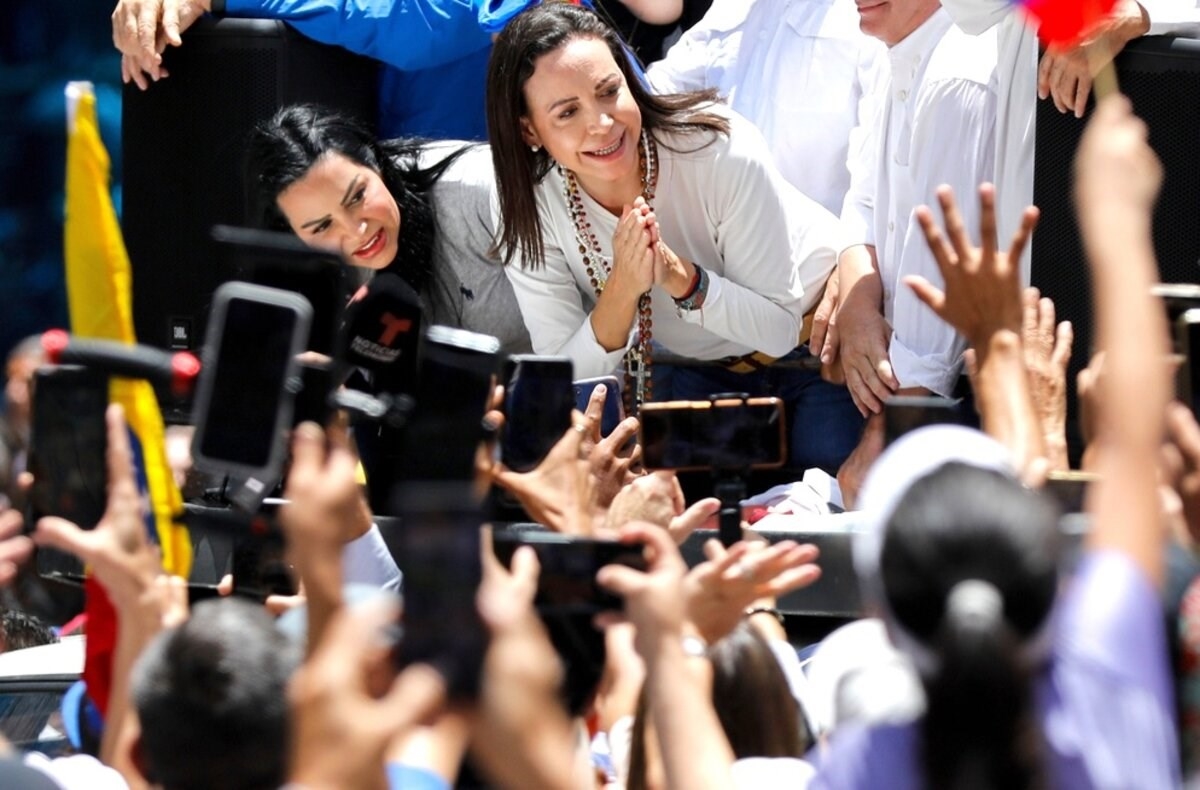REPRINTED WITH PERMISSION FROM THE CHRISTIAN SCIENCE MONITOR
This year’s winner, Venezuela’s María Corina Machado, relies on inner resources that are similar to past winners from Myanmar and Iran.
 Before she was forced into hiding, María Corina Machado leads a protest against the reelection of President Nicolás Maduro in Caracas, Venezuela, Aug. 28, 2024. AP
Before she was forced into hiding, María Corina Machado leads a protest against the reelection of President Nicolás Maduro in Caracas, Venezuela, Aug. 28, 2024. AP
Oct. 10, 2025, 1:39 p.m. ET
The winner of this year’s Nobel Peace Prize, Venezuelan opposition leader María Corina Machado, has many striking similarities to two previous winners: Myanmar’s Aung San Suu Kyi and Iran’s Narges Mohammadi. Yes, all three are women. Yes, all are champions for democracy inside dictatorships. And all are either in prison or in hiding.
On those aspects alone, they are worthy of a Nobel and inspiring to millions of followers. Yet what really links them in a meaningful way is how they describe a mental strength that helps them stand for civic virtues such as individual freedom and democratic equality.
Perhaps Ms. Suu Kyi best describes how pro-democracy dissidents rely on each other for what she calls a spiritual freedom from fear. In 2011, she spoke of what helps sustain her during long confinements: “I felt almost as a physical force the strong bond that linked those of us who had only our inner resources to fall back on when we were most in need of strength and endurance.”
She tells the people of Myanmar to “live like free people in an unfree nation.” The winner of the 1991 Peace Prize said she has “always been free” in her own mind and finds no need to forgive the rulers who arrested her because, “I don’t think they really did anything to me.”
In Iran, Ms. Mohammadi wrote a two-part book on how women dissidents endure torture and other cruelties in prison. She found they turn humiliation into a “spiritual experience” to make themselves stronger. Some find “certainty in the ultimate victory of truth.”
“The Islamic regime cannot separate a woman from her love for her family, her fellow citizens, or her God,” she wrote.
In Venezuela, as the Nobel committee put it, Ms. Machado has kept “the flame of democracy burning against a growing darkness” under the 12-year rule of President Nicolás Maduro. She describes her efforts as a spiritual struggle that endures “because truth persists until it prevails.” In the face of a regime that relies on fear and division, she says she does not divide people into friends or enemies. “They are all citizens,” she told Forbes.
“This country is not polarized, it is profoundly united. In the pain that it feels, but also in hope. Our hope is certain, it is growing, and they will not stop it.”
Add humility to Ms. Machado’s traits. When told of winning the Nobel, she said it was the achievement of a whole society. “I am just one person. I certainly do not deserve this,” she said in a video message.
Page created on 10/14/2025 7:35:13 PM
Last edited 10/14/2025 7:45:05 PM
